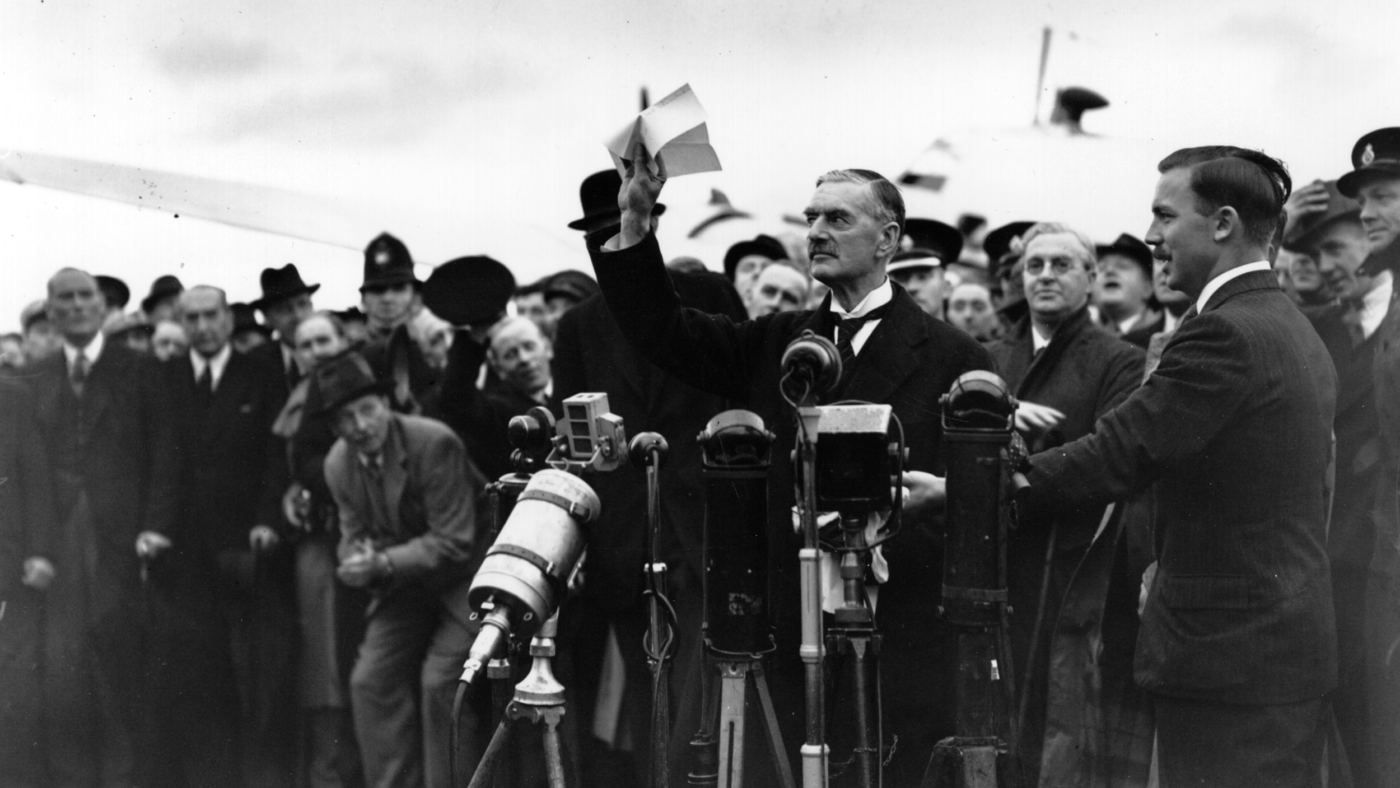Some dates are seared into public consciousness. 9/11, for instance, requires no elaboration. The date alone is enough.
For earlier generations, mention of the year 1938 had the same impact. It was immediately obvious what you were referring to: Munich, appeasement and Allied shame.
The history of 2022 has yet to be made, let alone written. But decisions taken now – at this hour, on this day – will determine if 2022 comes to be known as our century’s 1938, or if it has a more welcome resonance as the year in which the lesson of appeasement was applied to another aggressive dictator.
There are striking parallels with 1938. Putin says that Ukraine is part of Russia as its population are ‘ethnically Russian’. Eighty four years ago, Hitler claimed that the Sudetenland was really part of the German Reich, with its 3 million people ‘ethnically German’.
In 1938, the response from the likes of France and the UK to Hitler’s determination that Germany annexe the Sudetenland was… nothing, except some pleas to the Fuhrer to act like a decent chap. Instead of realising that the worst possible outcome would be to make clear to an imperialist dictator that we would not stand in his way, the Allies were consumed with the idea that the worst possible outcome would be war.
In his various meetings with Chamberlain that year, Hitler kept upping the ante. Chamberlain’s response each time was to crumble and accept whatever Hitler demanded, leading eventually to the Munich agreement on 29 September, in which Hitler agreed to resolve future differences through consultation to assure peace. Chamberlain and Daladier, the French PM, returned to their respective countries and proclaimed their triumph. But the Prime Minister’s famous proclamation of ‘peace for our time’ was entirely hollow. In reality, of course, they had merely confirmed to Hitler his belief that they would not stand up to him, setting in train the events of 1939 and beyond.
This time, the West has at least used the rhetoric of standing up to Putin. To date, however, that is all it is. The sanctions that have been announced so far are barely worth even mentioning. Instead, we have seen Western nations focus on the economic hit we will suffer if we sanction Russian energy, or its banking, or its… you name the sector. But this is our 1938. This is the moment when the shape of the rest of the 21st century is to be determined.
We have two choices. We can scream and shout and then, when push comes to shove, collapse – saying much and doing nothing of any consequence. Or we can realise that this current crisis is one of our making, because over the Crimea, over Syria and over Afghanistan we have made it clear that the West is weak and will not back its words with deeds. And we can change the playbook, this time for once taking serious and decisive action.
Putin may be irrational in one sense, but his response to the West’s lack of resolve is in another sense entirely rational. He has seen how we behave and drawn the conclusion he has nothing much to worry about. So the choice is ours. Do we confirm him in that view, and set the world on a dangerous path for decades. Or do we act, and suffer the pain in order to protect our future?
Click here to subscribe to our daily briefing – the best pieces from CapX and across the web.
CapX depends on the generosity of its readers. If you value what we do, please consider making a donation.


